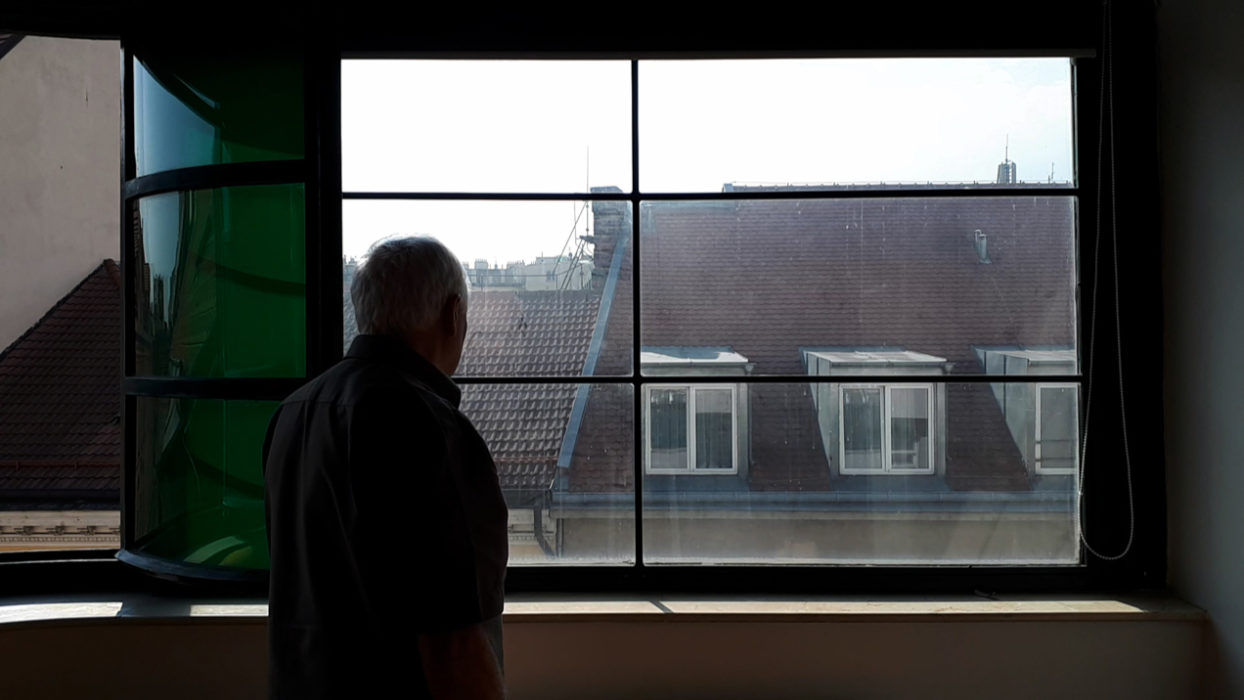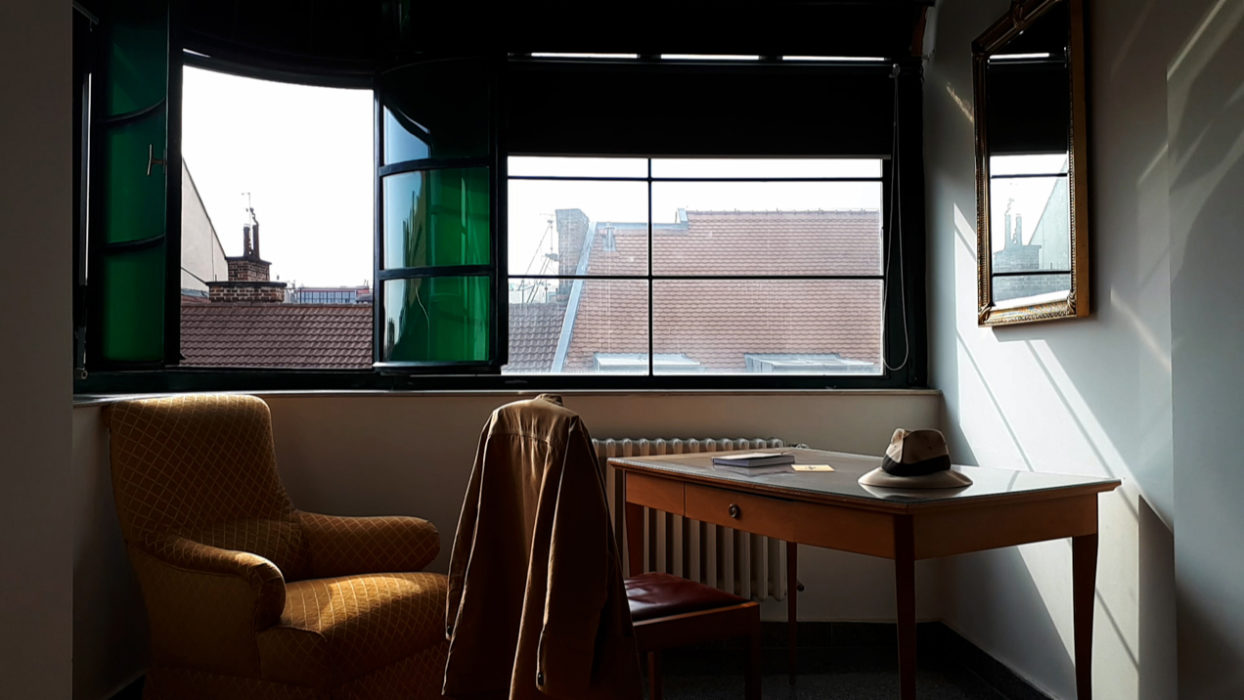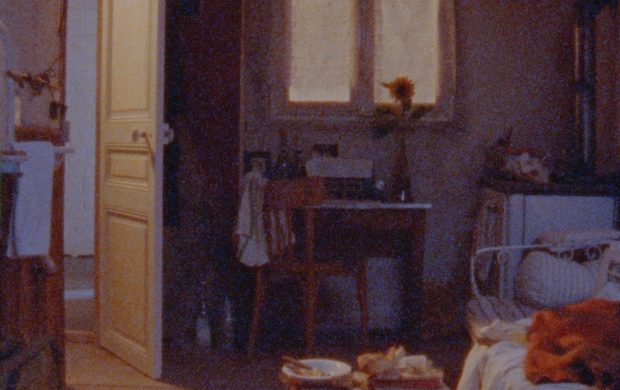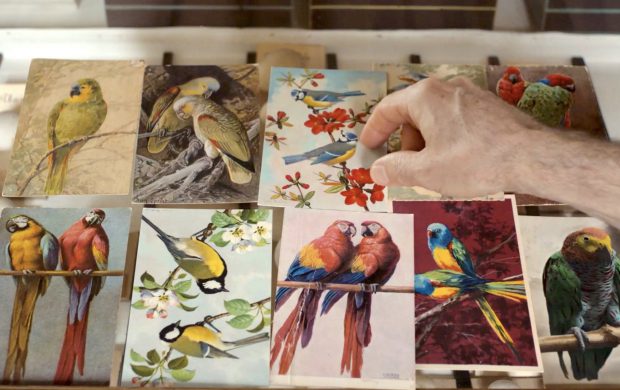The Tomb of Kafka
“You do not need to leave your room. Remain sitting at your table and listen. Do not even listen, simply wait. Do not even wait, be quiet still and solitary. The world will freely offer itself to you to be unmasked, it has no choice, it will roll in ecstasy at your feet” Franz Kafka
The few words of Kafka chosen by Jean-Claude Rousseau as an introduction to his latest film seems to roll out his project: “You do not need to leave your room. Remain sitting at your table and listen. Do not even listen, simply wait, be quiet, still and solitary. The world will freely offer itself to you to be unmasked, it has no choice, it will roll in ecstasy at your feet.” We seem to hear the director’s advice to a young filmmaker. Filmed in a Prague hotel room with, for the first time, a telephone, The Tomb of Kafka watches the filmmaker pottering around a desk. He opens the blinds, then the windows – it is summer – exits the frame, sits in an armchair, never stays put for long. The brief shots, which regularly fade to black, multiply the days and moods, switch from windows open to windows closed, in an agitation that points to the photo camera’s untimely focussing. Finally, comes the moment when he sits down at his table. To read, or simply inspect the piece of furniture, its surface on which a wasp has come to die, its drawer from which he takes a small porcelain cup. Fragments of a Japanese undergrowth replace the makeshift screens provided by the room’s blinds. A small Kafkaesque bestiary is put in place, the small fable of a world in ecstasy whose secret will be revealed by the porcelain.
Antoine Thirion
Jean-Claude Rousseau
jeanclauderousseau@laposte.net




